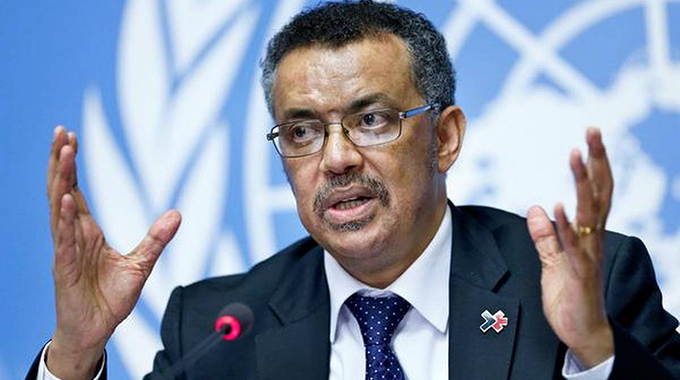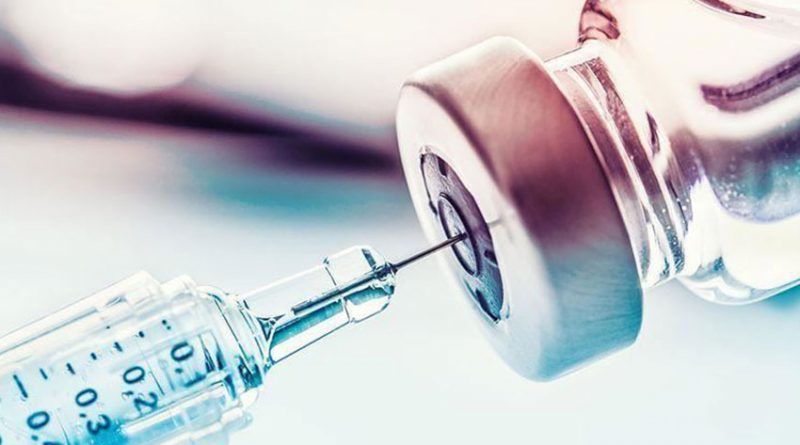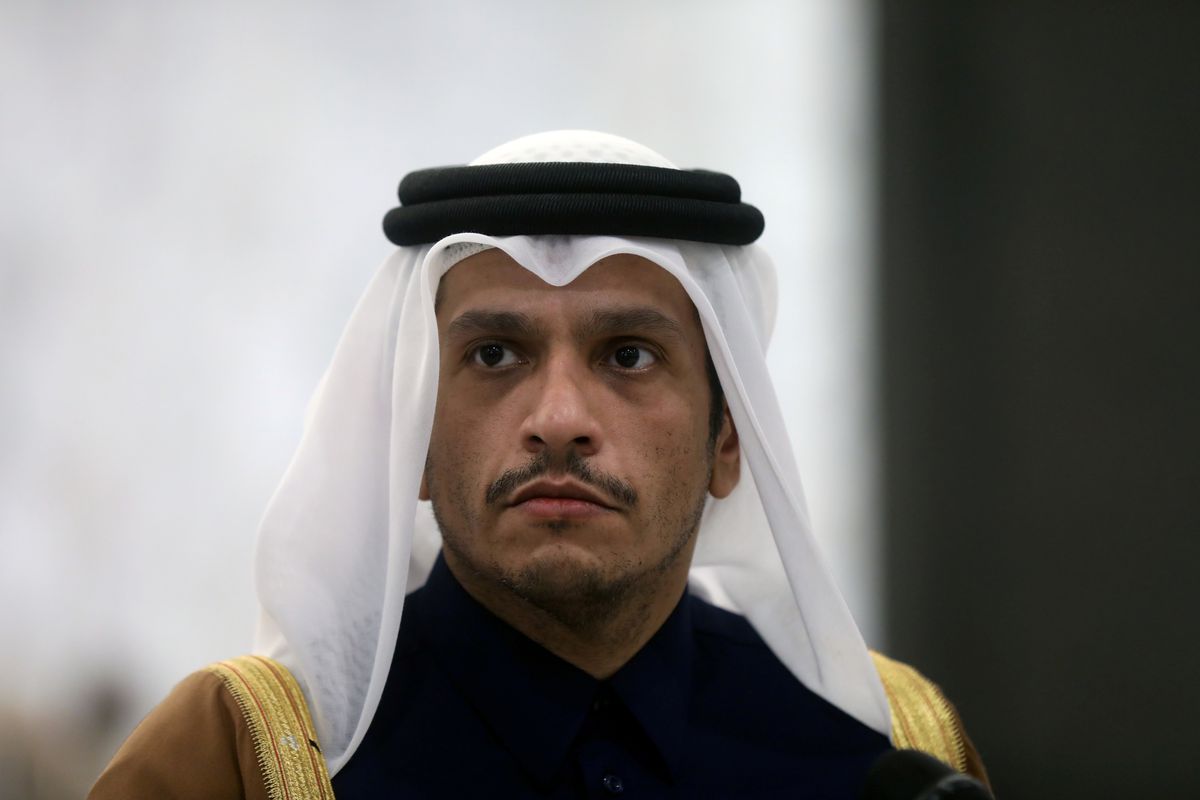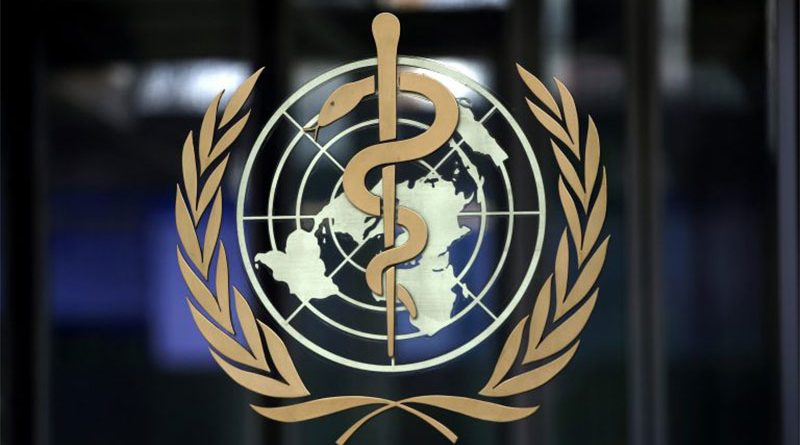GENEVA (Reuters) - The world can bring the global COVID-19 pandemic under control in the coming months provided it distributes the necessary resources fairly, the head of the World Health Organization (WHO) told a news briefing on Monday.
Global climate change activist Greta Thunberg, joining the briefing as a virtual guest from Sweden, took a swipe at “vaccine nationalism” and said it was unethical that rich countries were prioritising their younger citizens for vaccination ahead of vulnerable groups in developing countries.
“We have the tools to bring this pandemic under control in a matter of months, if we apply them consistently and equitably,” said the head of WHO, Tedros Adhanom Ghebreyesus.
However, he also expressed concern over the “alarming rate” at which COVID-19 is spreading in those aged 25-59 worldwide, possibly due to much more contagious variants.
“It took nine months to reach one million deaths; 4 months to reach 2 million, and 3 months to reach 3 million.”
Thunberg said that whereas one in four people in high-income countries had now been vaccinated against COVID-19, only one in more than 500 people in poorer countries had received a shot.
“Vaccine nationalism is what is running the vaccine distribution,” she said.
“The only morally right thing to do is to prioritise the people who are most vulnerable, whether they live in a high income or a low income country.”
ENVIRONMENTAL DAMAGE
Thunberg also drew a direct link between the pandemic and the environmental destruction that she said made it much easier for dangerous viruses to leap from animal populations to humans.
“Science shows we will experience more frequent, devastating pandemics unless we drastically change our ways and the ways we treat nature ... We are creating ideal conditions for diseases to spill over from one animal to another and to us,” she said.
Thunberg urged young people everywhere to get vaccinated if given an opportunity, even though they are the age group least at risk from COVID-19, out of “solidarity with people in the (high) risk groups”.
A leading WHO epidemiologist, Maria van Kerkhove, told the same briefing that the latest surge in COVID-19 infections worldwide included increases among age groups previously less affected by the pandemic.
“We are seeing increased rates of transmission across all age groups,” she said, adding that some 5.2 million cases were reported last week, the highest weekly increase since the start of the pandemic.
“We are seeing a slight age shift in some countries, driven by social mixing,” she added.
Our Standards: The Thomson Reuters Trust Principles.
WEALTHY governments are looking to COVID-19 shots from Pfizer Inc and Moderna Inc to keep their vaccination programs on track, as safety concerns and production problems sideline vaccines from AstraZeneca Plc and Johnson & Johnson, public health experts and industry analysts say.
Countries in Europe and Asia, as well as South Africa, are limiting or halting use of AstraZeneca’s shot over safety concerns. Rollout of J&J’s one-shot vaccine was paused in the United States and Europe this week over a handful of cases of very rare but dangerous blood clots in the brain, much like AstraZeneca’s safety issue.
The U.S. Food and Drug Administration said it was studying whether the technology behind both vaccines was connected to the clotting cases. Both use a modified cold virus as a vector to deliver coronavirus proteins into cells and prompt an immune response.
Combined, the two vaccines are supposed to account for more than 25% of global supply in 2021, according to a Reuters tally of public statements and media reports.
The vaccines from Pfizer with German partner BioNTech SE and Moderna use a different method to protect against COVID-19 that relies on messenger RNA (mRNA) to program cells to generate immunity to the coronavirus.
Those two shots were already viewed as a preferred choice among wealthy countries, analysts said, based on clinical trial data showing they were more than 90% effective at preventing symptomatic COVID-19. About 120 million Americans have received a Pfizer or Moderna shot so far with no major safety issue identified.
Now, the United States and European Union are pushing to stock up on even more of the mRNA vaccines. Japan is also working to secure 100 million doses of Pfizer’s shot by the end of June.
“Right now, (mRNA-based shots) are the Lamborghinis or McLarens of COVID-19 vaccines,” said Dr. Peter Hotez, a vaccine researcher at Baylor College of Medicine in Houston, referring to ultra high-end luxury automobiles.
J&J and AstraZeneca did not immediately respond to requests for comment.
Both Moderna and Pfizer said they are working to increase output above their 2021 production targets of up to 1 billion and 2.5 billion shots, respectively.
Pfizer this week said it is targeting a 10% increase in U.S. dose deliveries through May and 50 million more doses for Europe in the second quarter of 2021. The EU is also negotiating for up to 1.8 billion Pfizer doses for 2022 and 2023.
German biotech CureVac, which is testing its own mRNA vaccine, on Thursday said requests for its shot have increased over the past few days following the J&J pause. It expects to file for European authorization in late May or early June.
‘NOT CHEAP’
The higher cost, production limits and demanding requirements for shipping and storage could limit mRNA-based vaccines’ availability in lower income countries, experts said.
“The raw materials needed for mRNA manufacturing and production are not cheap right now,” said Hartaj Singh, a biotechnology analyst at Oppenheimer & Co.
“In the second half of this year, we’ll see the conversation change to, ‘okay, how can we help the developing world get their hands on mRNA vaccines,'” Singh said of countries like the United States, which has pledged to do so.
Moderna Chief Executive Stephane Bancel reiterated this week that his company would be able to significantly increase production in 2022.
Reuters on Wednesday reported that Moderna was talking to a U.S. company with capacity to produce 30 million doses of its shot each month.
But poorer countries will likely still have to rely on the vaccines from J&J, AstraZeneca and others from China and Russia that unlike the mRNA shots can be stored in a standard refrigerator, making them a better option for rural and hard to reach areas.
That could change, said Amesh Adalja, senior scholar at Johns Hopkins Center for Health Security.
“Hopefully, there will be innovation around the storage of mRNA vaccines that allows them to be used more widely,” he said.
Qatar's foreign affairs minister said on Saturday his country is ready to host the World Cup next year and has been in talks with vaccine providers to ensure all attendees are vaccinated, Qatar's state news agency QNA reported.
"Right now there are programs under development to provide vaccination to all the attendees of the World Cup. We will be able, hopefully, to host a COVID-free event," said Sheikh Mohammed bin Abdulrahman al-Thani, who is also deputy prime minister.
The president of global soccer body FIFA, Gianni Infantino, said in February that World Cup matches would play to full stadiums in Qatar next year. read more
Al-Thani said he believed it would be the first carbon-neutral world event, QNA said.
Our Standards: The Thomson Reuters Trust Principles.
THE World Health Organization has appealed to countries not to pause vaccination campaigns after two more European nations and one in Asia joined a handful that has suspended the use of AstraZeneca’s COVID-19 vaccine over safety fears.
Thailand announced plans on Monday to go ahead with the Anglo-Swedish firm’s shot but Indonesia said it would wait after Ireland and the Netherlands announced suspensions on Sunday.
Denmark and Norway have reported isolated cases of bleeding, blood clots and a low platelet count after the AstraZeneca vaccine. Iceland and Bulgaria had earlier suspended its use while Austria and Italy have stopped using particular batches.
France, Germany and the United Kingdom say they have no concerns.
The WHO said its advisory panel was reviewing reports related to the shot and would release its findings as soon as possible. But it said it was unlikely to change its recommendations, issued last month, for widespread use, including in countries where the South African variant of the virus may reduce its efficacy.
“As of today, there is no evidence that the incidents are caused by the vaccine and it is important that vaccination campaigns continue so that we can save lives and stem severe disease from the virus,” WHO spokesman Christian Lindmeier said.
AstraZeneca’s shot was among the first and cheapest to be developed and launched at volume since the coronavirus was first identified in central China at the end of 2019 and is set to be the mainstay of vaccination programmes in much of the developing world. The virus has killed more than 2.7 million people.
Thailand became the first country outside Europe to delay rolling out the vaccine on Friday, when its political leaders were due to have the first shots, but the government said on Monday they would receive the AstraZeneca vaccine on Tuesday.
Indonesia, however, said it would delay administering the shot due to the reports of blood clots among some recipients in Europe and would await a review from the WHO.
The WHO had already said there was no indication the events were caused by the vaccination, a view also expressed by the European Medicines Agency (EMA), which said the number of reported blood clots was no higher than seen in the general population.
The handful of reported side-effects in Europe have upset vaccination programmes already under pressure over slow rollouts and vaccine scepticism in some countries.
The Netherlands said on Monday it had seen 10 cases of possible noteworthy adverse side-effects from the AstraZeneca vaccine, hours after the government put its vaccination programme on hold following reports of potential side-effects in other countries.
Denmark reported “highly unusual” symptoms in a 60-year-old citizen who died from a blood clot after receiving the vaccine, the same phrase used on Saturday by Norway about three people under the age of 50 it said were being treated in hospital.
“It was an unusual course of illness around the death that made the Danish Medicines Agency react,” the agency said in a statement late on Sunday.
AstraZeneca Plc said earlier it had conducted a review covering more than 17 million people vaccinated in the European Union and the UK which had shown no evidence of an increased risk of blood clots.
POLITICAL ROW
In Germany, the question marks over the vaccine caused a political row, with the leader of the Bavarian Christian Social Union (CSU), Markus Soeder, saying the country needed clear guidance from its own experts.
Noting that some other EU countries had stopped using the vaccine, Soeder told a news conference: “That’s why there has to be an extra clear statement in Germany: is the vaccine good or bad?”
The health ministry said the country was continuing to use the vaccine according to EMA guidelines.
The reports of potential safety risks are taken seriously and data is examined constantly, a ministry spokesman told Reuters. Further proceedings would be discussed with the European and the national vaccine regulators this week, he said.
Investigations into potential side-effects are complicated as the history of each case and circumstances surrounding a death or illness are examined. The Austrian authorities have said their review of the AstraZeneca batch will take about two weeks.
The EMA has said that as of March 10, a total of 30 cases of blood clotting had been reported among close to 5 million people vaccinated with the AstraZeneca shot in the European Economic Area, which links 30 European countries.
The WHO said that as of March 12, more than 300 million doses of COVID-19 vaccines had been administered around the world with no cases of death found to have been caused by any of them.
Source - Thomson Reuters Foundation




